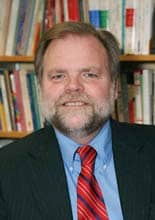By Bruce Epperly
 As a child of the 60s, I remember protesting the war rather than honoring the lives of soldiers. Memorial Day was a non-event for most of my generation. But, over the years, I have come to appreciate the men and women who've made the ultimate sacrifice on behalf of our nation. Once known as Decoration Day, because tombstones were decorated with flags and flowers, Memorial Day is a time of remembrance and gratitude for those who have died serving our country in the military, beginning with the Civil War and today in Iraq and Afghanistan and across the globe. Many of these women and men did not choose to fight, and came to military service with grave reservations, but they nevertheless obeyed our leaders' decisions and fought on our behalf. Memorial Day is neither a glorification of violence nor a denial of the spiritual quest for the Peaceable Kingdom, but a time to remember and give thanks.
As a child of the 60s, I remember protesting the war rather than honoring the lives of soldiers. Memorial Day was a non-event for most of my generation. But, over the years, I have come to appreciate the men and women who've made the ultimate sacrifice on behalf of our nation. Once known as Decoration Day, because tombstones were decorated with flags and flowers, Memorial Day is a time of remembrance and gratitude for those who have died serving our country in the military, beginning with the Civil War and today in Iraq and Afghanistan and across the globe. Many of these women and men did not choose to fight, and came to military service with grave reservations, but they nevertheless obeyed our leaders' decisions and fought on our behalf. Memorial Day is neither a glorification of violence nor a denial of the spiritual quest for the Peaceable Kingdom, but a time to remember and give thanks.
Regardless of our feelings about a particular war or military service in general, Memorial Day invites us to remember the sacrifices of others and the intricate interdependence of life. Our freedoms and lifestyle are not accidental, but the result of the sacrifices of others. None of us is self-made. We all need one another to achieve the most important things in life, whether in relationships, personal well-being, spiritual growth, and business success.
Memorial Day is, of course, a secular holiday, honoring our nation and its fallen warriors, and while many of us object to the naïve identification of God with country, many of our congregants will come to church this Sunday remembering loved ones who died in foreign wars or are currently serving overseas in the military. For them, there is no separation of faith and national well-being, nor, despite our theological misgivings, should it be for us. Even if we object to having an American flag in the sanctuary, those of us who affirm the doctrine of divine omnipresence must recognize that God was present in the lives of those who died serving their nation then and now. Following the biblical narratives of the nations of Israel and Judah, we must also remember that God is moving through the lives of nations and their leaders, not in some deterministic or chauvinistic manifest destiny but, in the spirit of the prophets, to seek the foundations of Shalom -- justice, equality, care for the vulnerable, security, and safety. Securing Shalom, the reign of peace, requires social order and national integrity in the context of affirming the quest for international order and justice.
Most preachers will avoid addressing Memorial Day in their sermons, although in many congregations, good pastoral care requires recognition of Memorial Day in congregational announcements or pastoral prayers. At first glance, Memorial Day has nothing to do with Trinity Sunday. Memorial Day is concrete, flesh and blood, remembrance of fallen heroes, while Trinity Sunday deals with one of Christianity's most challenging doctrines, something that, at first glance, has little to do with the ethical decision-making, personal values and stewardship, and faithfulness in daily life. Indeed, many mainline Protestants are "practical Unitarians," whose theological focus is more likely to be God the Creator or the historical Jesus, rather than the mysterious and freely-moving Holy Spirit.
However, if the preacher chooses to address the issue of sacrifice -- military, martyrdom, or peacekeeping -- the words of Romans 5:1-5 provide a starting point for conversation. In the context of his own sacrifices, and the first Christians' sacrifices, the apostle Paul notes the connection between grace and character, and divine affirmation and human spiritual growth. Having awakened to God's grace and glory in our lives and the world, we can "boast in our sufferings, knowing that suffering produces endurance, and endurance produces character, and character produces hope and hope does not disappoint us, because God's love has been poured into our hearts through the Holy Spirit that has been given us."
In Romans 5, Paul is not glorifying suffering, but asserting that in a grace-filled world, we have all the resources we need to grow through the challenges of life. We are not victims, but actors and artists in the transformation of our lives and the world. In the journey of faith, character is everything and character is grounded in moment-by-moment choices to look beyond our self-interest to embrace the well-being of others. On Memorial Day, we remember those who sacrificed their lives for a cause greater than themselves, but we also commit ourselves to sacrificial lives -- to letting go of the ego for the greater good of our families, churches, community, nation, and the world.





